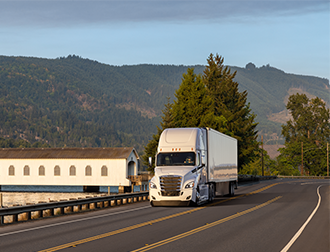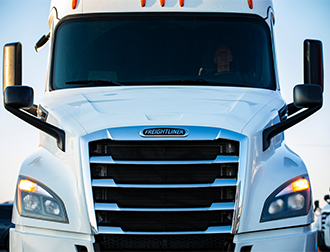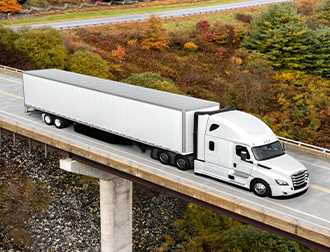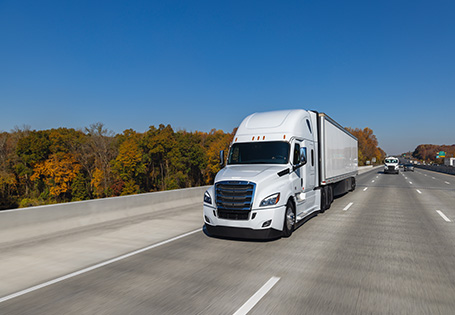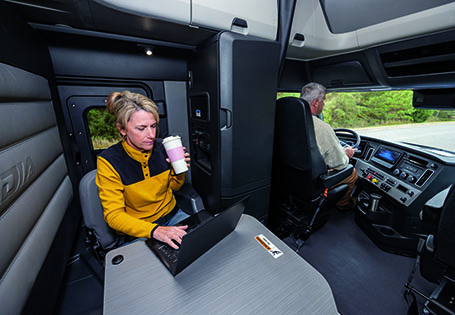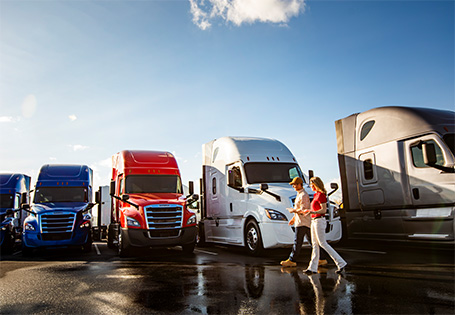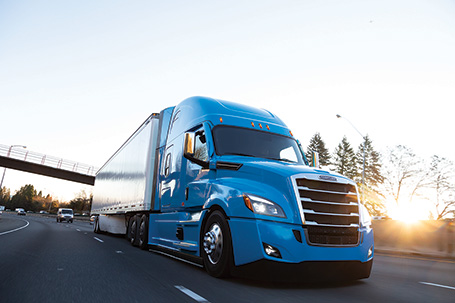Tips For Choosing The Best Truck Insurance Policy & Company
Published on
31 January 2025
Your Center for 37663
Searching for centers...
No centers found in this area. Please try a different location.

31 January 2025
Choosing the right truck insurance policy is essential to protecting your business from unexpected financial losses. Whether you’re an owner-operator or manage an entire fleet, having the right coverage ensures you're prepared when the unexpected happens. This guide breaks down everything you need to know – from understanding your risks to picking the best provider and navigating claims.
Before diving into providers and policies, it's important to understand why commercial truck insurance is a non-negotiable part of running a successful business.
From accidents and breakdowns to theft and cargo damage, trucking comes with financial risks that insurance helps absorb. Without coverage, a single incident could lead to devastating out-of-pocket expenses.
Depending on your operations and region, specific levels of commercial truck insurance may be required by federal or state law, especially if you cross state lines or transport freight.
Having proper used truck insurance protects not just your equipment, but your livelihood. The right policy can keep your business running after a loss by covering repairs, replacements, or even rental vehicles.
Many shippers and brokers require proof of certain types of coverage before doing business with you. Insurance helps build trust and keep contracts flowing.
Insurance isn’t one-size-fits-all. Use this checklist to find the best fit for your specific trucking operation:
Assess your truck type, usage, and cargo value
Consider your routes, risks, and asset depreciation
Compare premium vs. deductible tradeoffs
Choose providers with 24/7 claims support and trucking experience
Evaluate total value beyond cost – coverage flexibility, customer support, add-ons
To assess what exactly you need out of your insurance plan, it’s essential to understand these key aspects of your business.
Truck Type and Usage: A truck’s size, weight, and function influence your coverage needs. Consider your routes, travel distances, and the type of cargo you haul when making your insurance selection.
Evaluate the value of the truck and its equipment, including costs for damage coverage and replacement, particularly for high-value items. Also, account for depreciation to ensure sufficient protection for current and future asset values.
Risks such as accidents, breakdowns, and cargo damage can lead to significant financial losses.
Potential legal liabilities can emerge from accidents or incidents, including liability for injuries, damages, and environmental impacts.
Acquire coverage that supports business continuity, ensuring your business can continue operating smoothly after a major claim or loss.
Doing your research on insurance providers might be a bit tedious, but having trusted coverage will pay dividends in the long run when problems arise.
Choose commercial truck insurance providers with a solid reputation and experience.
Look for reviews, testimonials, and industry-specific expertise to ensure the provider understands the unique needs of trucking businesses.
Compare policies from multiple providers, keeping in mind what is included and excluded from each plan.
Prioritize providers that offer flexible coverage tailored to different operational risks.
Reliable customer support is crucial, especially during the claims process. Look for providers with 24/7 support and streamlined claims handling.
Check online reviews and seek recommendations to gauge a provider’s responsiveness and efficiency.
If you were wondering if any more factors could go into determining which coverage plan works best for you, then you were right.
Thoroughly review what each policy covers and excludes.
Look for key elements like liability limits, deductibles, and additional coverage options that fit your operational needs.
Balance affordable premiums with reasonable deductibles.
Calculate how out-of-pocket costs in the event of a claim align with your financial capacity.
The cheapest option isn’t always the best. Assess the overall value of a policy, including its comprehensiveness, flexibility, and provider reputation.
Factor in perks like roadside assistance or streamlined claims processes when weighing cost against benefits.
The claims process can feel overwhelming, especially if it’s your first time filing. But with the right preparation and understanding, it becomes a manageable part of protecting your business. Here’s what to expect – and how to stay in control throughout the process.
When an incident occurs, the first step is to report it to your insurance provider promptly, supplying all relevant details. Once reported, gather supporting evidence such as photos, videos, and any related documentation. After this, you'll need to formally file the claim with the necessary forms and proof of loss. From there, the insurance company will assess the damage or loss to determine coverage and approve the claim. Once approved, they will issue a payment to cover repairs or replacement. Finally, the claim is closed once the settlement has been completed.
Report the Incident – Contact the insurer and provide details of the event.
Gather Evidence – Collect photos, videos, and documentation related to the incident.
File a Claim – Submit the claim with required forms and evidence.
Claim Assessment – The insurer assesses the damage or loss, then approves the claim.
Settlement and Payment – Payment is made for repairs or replacement.
Close the Claim – The claim is closed after the settlement is completed.
Maintaining clear and timely communication with your insurance provider is key. Make sure to follow up regularly on the progress of your claim, ask questions when you're unsure, and promptly address any delays or issues that may arise. Proactive communication can significantly reduce downtime and frustration.
Your coverage type plays a significant role in how your claim is handled. Liability insurance is designed to cover damage or injuries caused to others, and this typically involves verifying the losses of other parties and determining who was at fault. Physical damage coverage, on the other hand, is focused on repairing or replacing your insured truck or equipment. It's crucial to understand your policy’s deductibles and the timeline for payouts so you can plan accordingly and avoid surprises during the process.
Selecting your insurance policy isn’t just a formality – it’s key to protecting everything you’ve worked for. The right commercial truck insurance provider will get the unique challenges of trucking and offer coverage that adapts to your needs.
Dependable trucks are the backbone of your business. If you are in the market, explore SelecTrucks' inventory of used semi trucks for sale to find the perfect ride that’ll keep you rolling smoothly and set your business up for success.
Our trusted team of truck advisors are here to help you reach your goals by providing exceptional used truck solutions with unwavering support. That means knowledge of your truck as well as business tips, financing and more.
